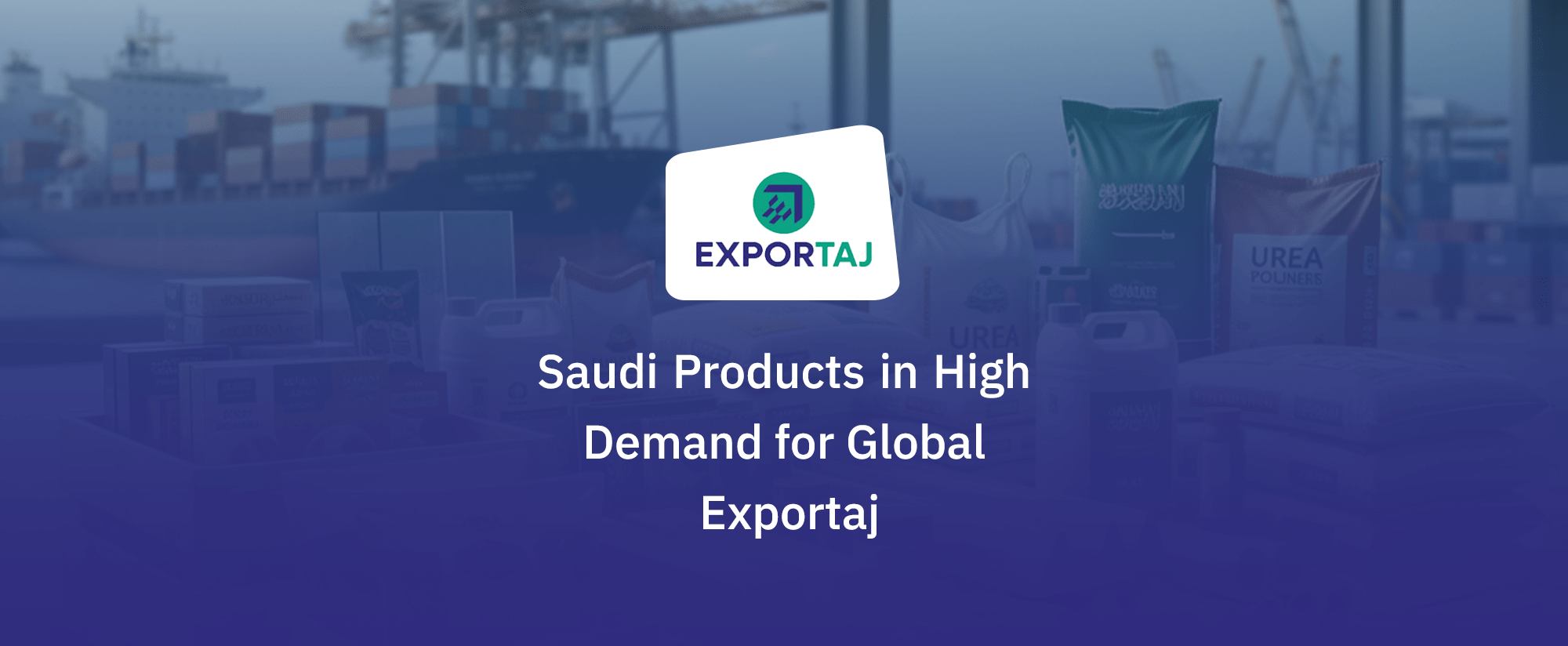Saudi Products in High Demand for Global Export
Discover the most in-demand Saudi products worldwide and how you can leverage them for export growth.
In recent years, Saudi products for export have witnessed remarkable growth, driven by the Kingdom’s vision to diversify its economy and boost non-oil exports as part of Saudi Vision 2030.
In 2023, non-oil exports exceeded SAR 350 billion, reflecting Saudi Arabia’s expanding footprint in global markets. Today, Saudi Arabia is no longer known only for oil—it has become a reliable source of agricultural, industrial, and chemical products that reach buyers worldwide.
With this momentum, export opportunities from Saudi Arabia in 2025 are brighter than ever, opening doors for companies of all sizes.
Saudi Agricultural Products in High Demand
Among the top Saudi agricultural exports, these products stand out:
Saudi Dates: The Golden Export
Saudi dates are world-famous, with exports surpassing 1.7 million tons annually to more than 100 countries.
Premium varieties such as Sukkari, Khudri, Ajwa, and Medjool enjoy strong international demand.
Known as the “Golden Food of Saudi Arabia,” dates remain a strategic product for global markets.
Fresh Fruits and Vegetables
Saudi tomatoes, potatoes, and onions are increasingly popular across regional markets.
Fruits like pomegranates, grapes, and citrus are gaining traction in Asia and Europe.
Saudi Food Industries in Global Markets
Dairy and Beverages
Saudi giants like Almarai and Nadec have become household names beyond the Gulf.
Dairy products, juices, and baked goods are exported to GCC, Africa, and Europe.
Paper and Packaging Products
The demand for Saudi-made paper products—including tissues and packaging materials—is rising steadily thanks to high-quality manufacturing.
Chemical and Plastic Products
Saudi Arabia is one of the world’s largest exporters of petrochemicals and plastics.
Saudi plastics are widely used in packaging, automotive parts, and construction materials.
The global demand for petrochemicals continues to make this sector a powerhouse in Saudi non-oil exports.
Manufacturing and Petrochemical Industries
Saudi petrochemical derivatives feed industries like textiles, construction materials, fibers, and synthetic rubber.
These products account for a significant share of Saudi Arabia’s top non-oil exports.
Aluminum and Metal Products
Saudi aluminum products are widely used in aviation, automotive, and construction industries.
The Kingdom is emerging as a global hub for base metals production and export.
Pharmaceuticals and Medical Supplies
Medicines and Healthcare Products
Saudi Arabia has significantly advanced its pharmaceutical industry.
Locally manufactured medicines and medical supplies are exported across GCC and North Africa.
With ongoing healthcare investments, Saudi pharmaceuticals are set to gain a strong international presence.
Wood and Furniture Products
Saudi wood-based products and furniture are expanding into global markets.
Their focus on modern designs and durable quality makes them increasingly competitive abroad.
Innovative Saudi Products Entering Global Markets
Saudi startups are exporting innovative products, including smart devices and eco-friendly technologies.
These high-value industries highlight the future of global Saudi industries with strong growth potential.
Export Opportunities from Saudi Arabia
Saudi products enjoy strong demand across Europe, Asia, and Africa.
The growth of B2B e-commerce platforms like Exportaj has made it easier for Saudi manufacturers to connect with global buyers and expand worldwide.
Frequently Asked Questions (FAQ)
1. What are the top Saudi products in global demand?
Dates, petrochemicals, dairy products, pharmaceuticals, aluminum, and paper goods.
2. Which Saudi agricultural products are exported most?
Dates, potatoes, onions, and fruits such as citrus and pomegranates.
3. Are Saudi dates popular in international markets?
Yes, they are among the most recognized and exported Saudi agricultural products.
4. Which Saudi industries compete globally?
Chemicals, aluminum, pharmaceuticals, and food industries.
5. Do non-oil products represent a large share of Saudi exports?
Yes, non-oil exports account for over 40% of Saudi Arabia’s international trade.
6. Which markets import Saudi products the most?
The GCC, China, India, Europe, and Africa.
7. Can small businesses export from Saudi Arabia?
Absolutely. Platforms like Exportaj make it simple for SMEs to enter global markets.
8. How does Vision 2030 impact non-oil exports?
It aims to raise the share of non-oil exports to 50% of the Kingdom’s GDP.
9. Which Saudi products have strong future potential?
Organic dates, pharmaceuticals, tech-based products, and innovative furniture.
10. How does Exportaj help Saudi companies reach global markets?
Exportaj provides a digital B2B marketplace connecting Saudi manufacturers with international buyers, making global expansion easier and more efficient.
Conclusion
Saudi products in global demand are growing rapidly, ranging from dates and food products to chemicals, pharmaceuticals, and innovative industries.
With strong government support and ambitious goals under Vision 2030, non-oil exports are becoming the backbone of Saudi Arabia’s global trade strategy.
For businesses aiming to enter international markets, platforms like Exportaj provide the right tools and connections to unlock new opportunities, expand globally, and build lasting partnerships.

